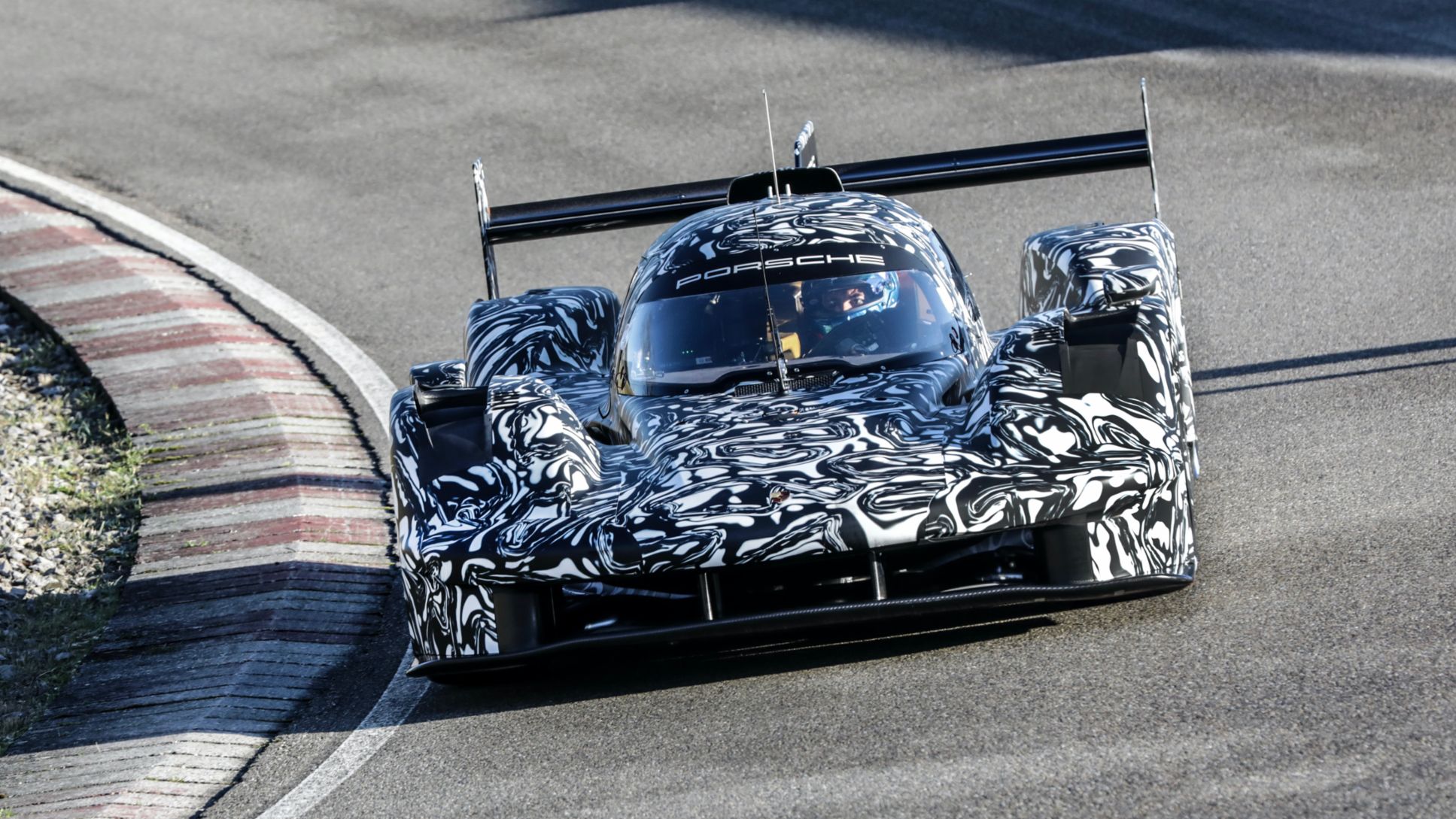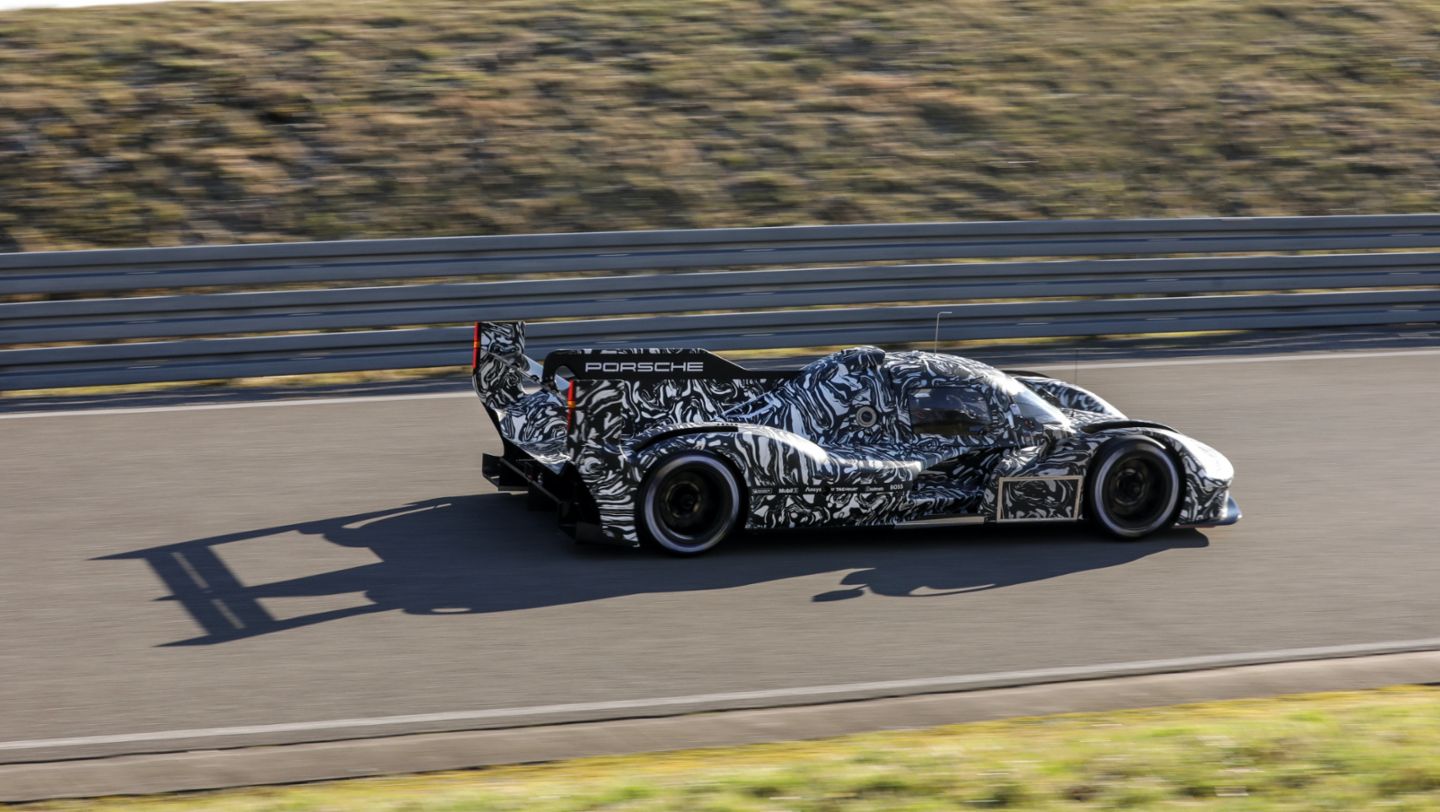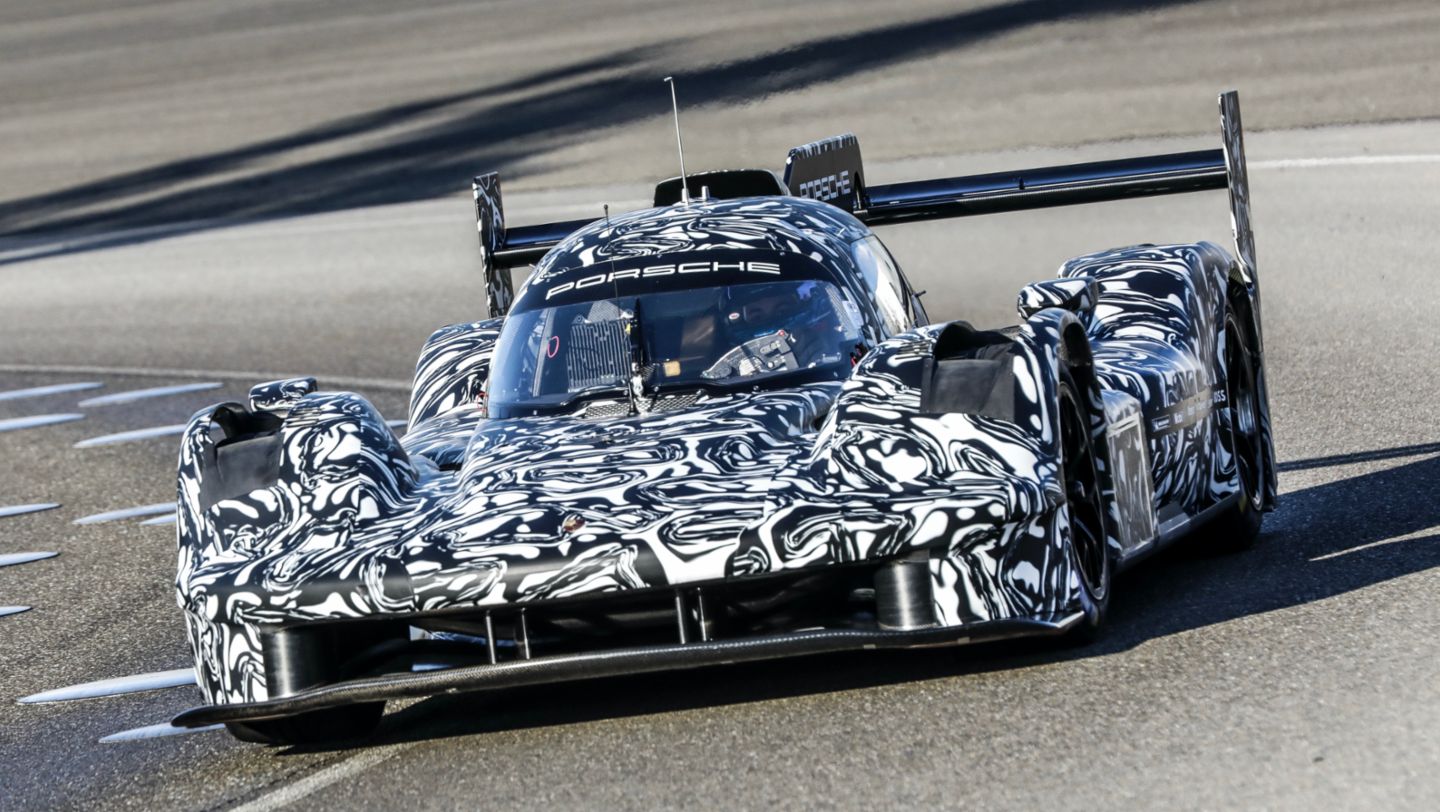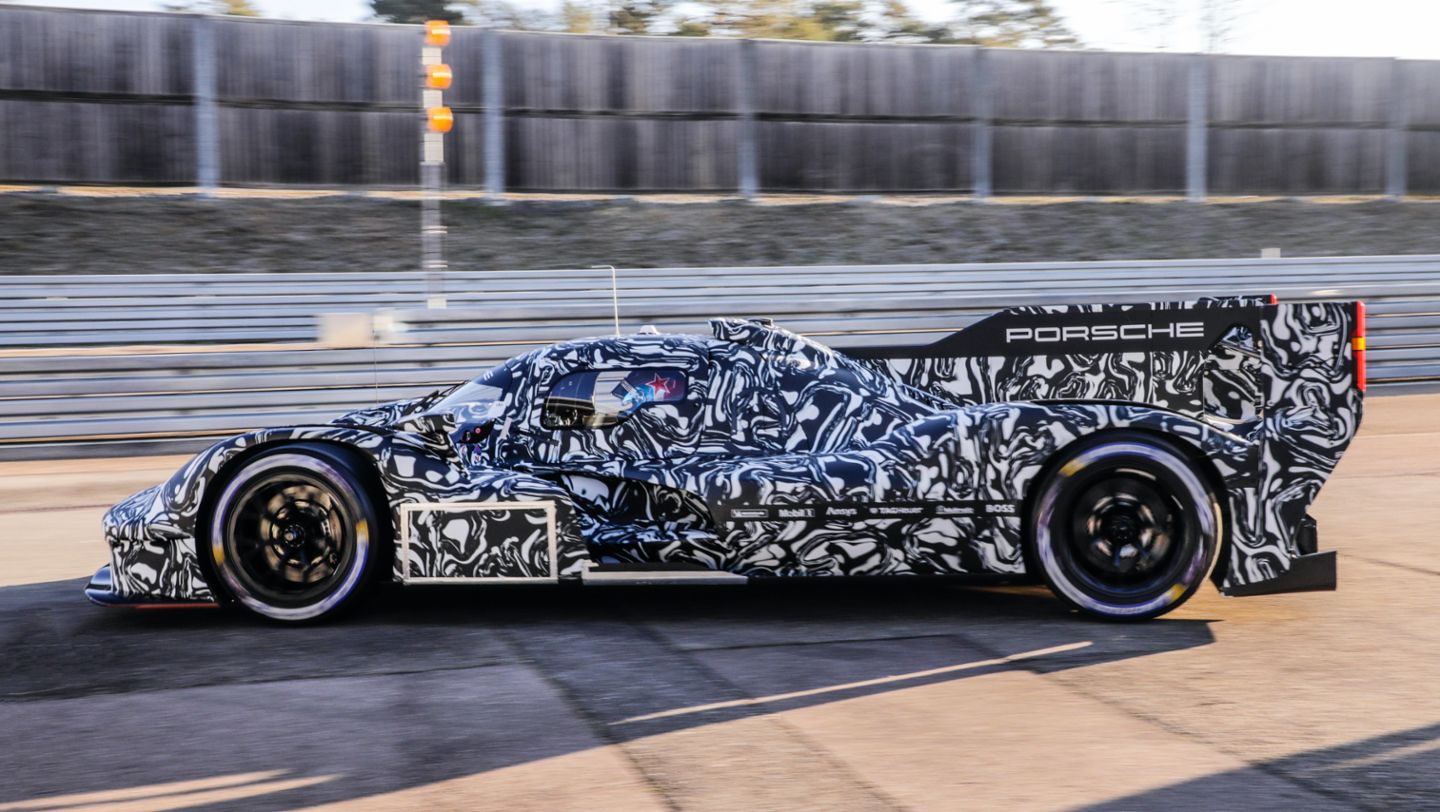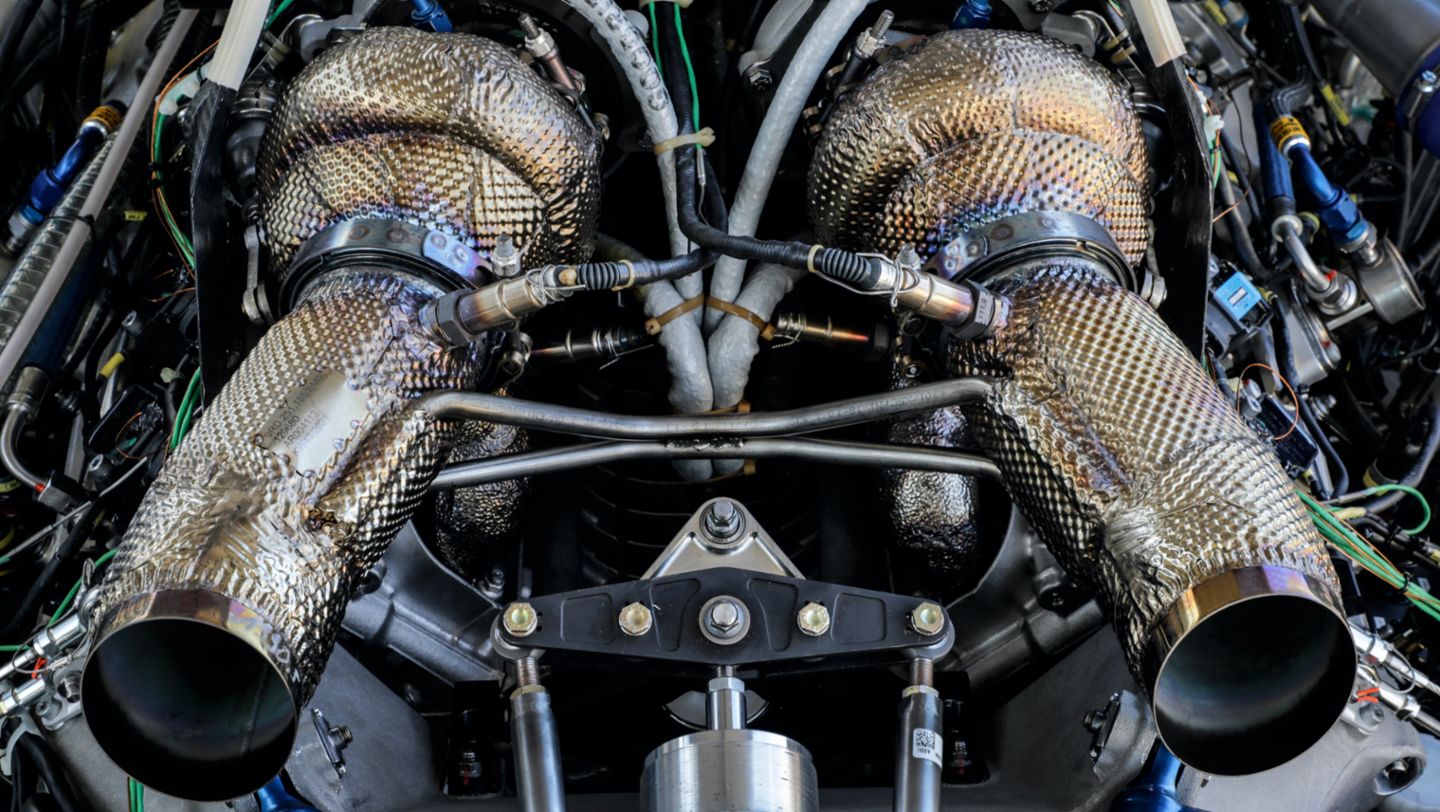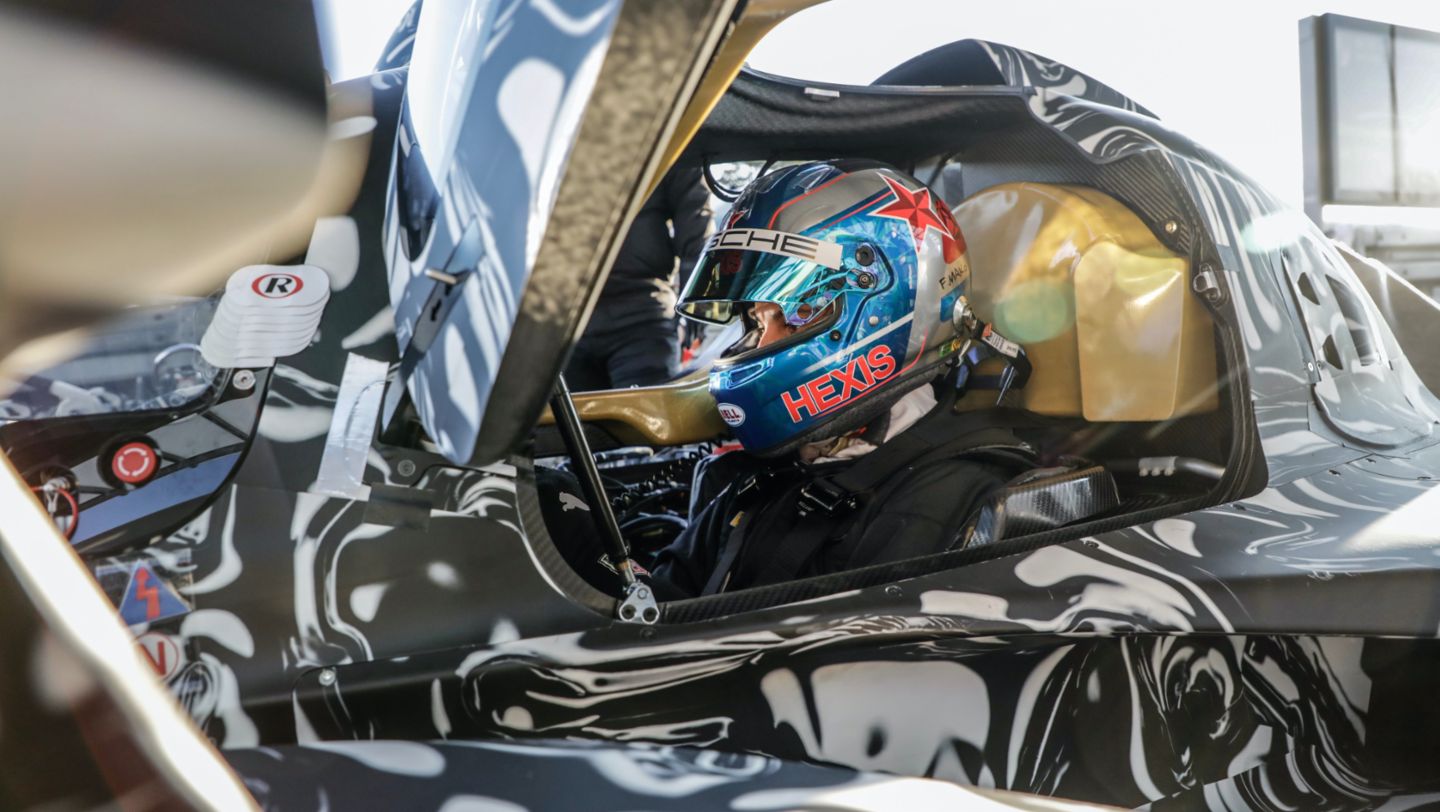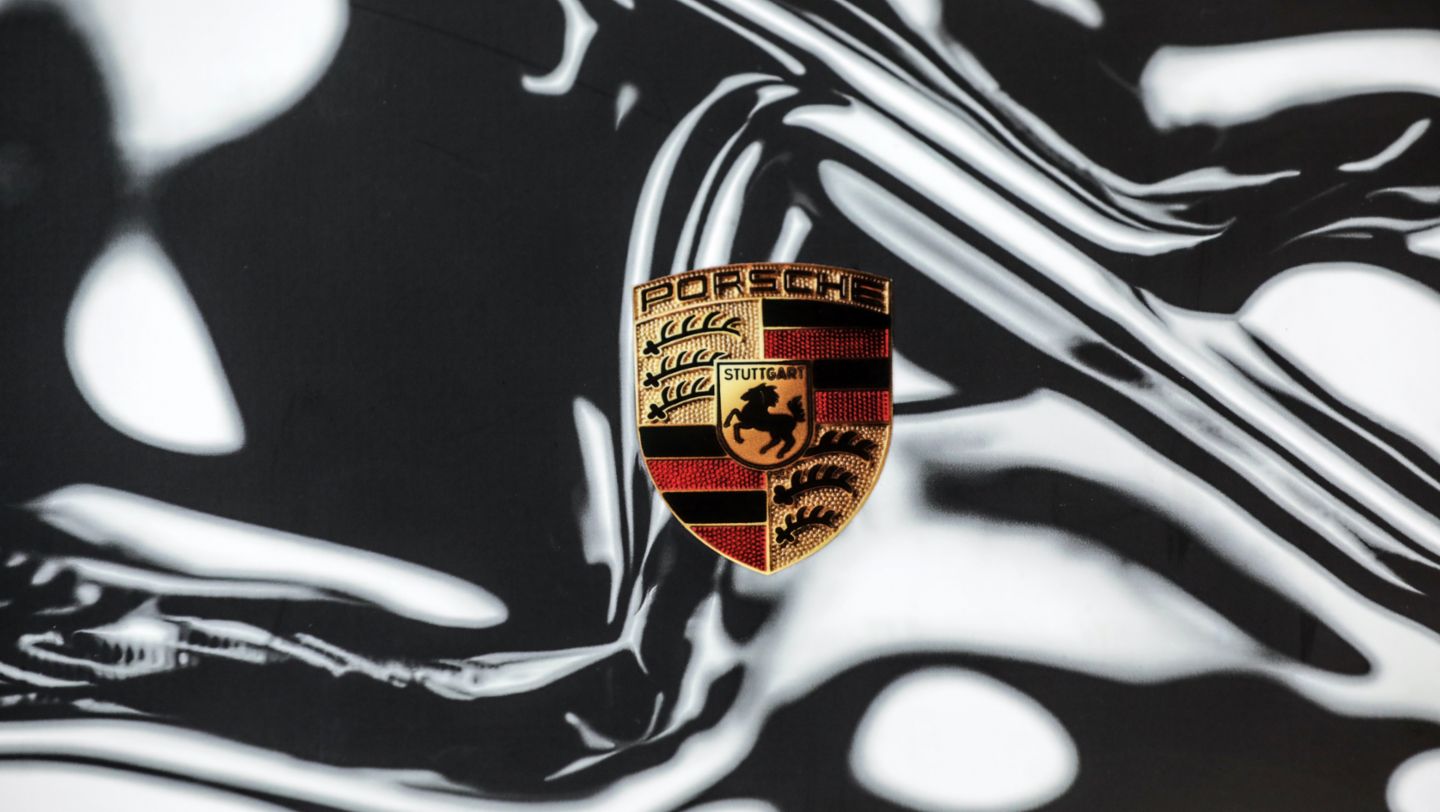The vehicle will be fielded in the FIA WEC World Endurance Championship and the North American IMSA WeatherTech SportsCar Championship under the team name Porsche Penske Motorsport. Now, the intensive test programme to prepare for the race debut in January 2023 has started. This premiere will take place at the traditional opening round of the IMSA series – the 24 Hours of Daytona. In selecting the combustion engine to complement the standard hybrid elements, as stipulated by the regulations, Porsche opted for a large-capacity twin-turbo V8 unit. The powerful engine is designed to run on renewable fuels, which means a significant reduction in CO2 emissions. In the race, the system output of the hybrid drive reaches around 500 kW (670 hp).
“We were spoiled for choice with the engine for our LMDh prototype, because the product range offers several promising baseline units,” explains Thomas Laudenbach, Vice President Porsche Motorsport. “We decided on the V8-biturbo, which we feel offers the best combination of performance characteristics, weight and costs. The kick-off to the active test programme was an important step for the project.”

Urs Kuratle, Overall Project Manager LMDh at Porsche Motorsport: “The rollout of the LMDh racing car was also the first track outing for Porsche Penske Motorsport. The squad worked well together right from the start. This shows a high level of professionalism in all areas. After all, the operational requirements for the safe running of a hybrid vehicle are very high. In the next outings we will focus on going deeper into the required processes and procedures. During these first test days at Weissach, the V8-biturbo impressed us in every respect. We’re convinced that we’ve chosen precisely the right unit.”
Engine regulations allow a great deal of freedom
The engine regulations for the LMDh vehicle class allow a great deal of freedom in terms of displacement, design and number of cylinders. Maximum revs are 10,000 rpm, with the pass-by noise measurement capped at 110 decibels. The engine must weigh a minimum of 180 kilograms, including the air supply and exhaust system as well as the peripheral cooling components. If used, this weight also incorporates the turbocharger/s including the charge air cooling. In line with the regulations, the maximum output lies between 480 and 520 kW (644 hp to 697 hp). This range also allows adjustments to be made within the Balance of Performance (BoP) parameters, which are intended to ensure parity between all competing LMDh racing cars.
The torque curve is also clearly defined. Under racing conditions, the combined power output of the combustion engine and hybrid drive totals 500 kW (670 hp) at the half-shafts. The standard components for the recuperation, storage and delivery of electrical energy are supplied by Williams Advanced Engineering (battery), Bosch (motor-generator unit and control electronics) and Xtrac (transmission).
